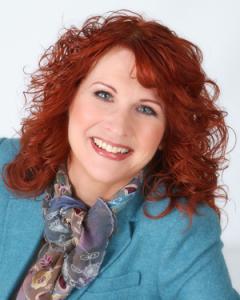Power of Attorney and Guardianship of an Elderly Parent

Helping Elderly Parents
Family caregivers lack an understanding of the level of responsibility. Acting as an agent or guardian requires a different level of skills and commitment.
GOLDEN, CO, USA, January 14, 2021 /EINPresswire.com/ -- The difference between power of attorney and guardianship is a common question asked by adult children. Both roles share a duty to provide care and oversight of medical care and health.
Caregiving expert and professional fiduciary Pamela D Wilson shares insights for family members from her years of experience as a court-appointed guardian and medical power of attorney for the elderly and disabled.
The main difference between guardianship and power of attorney is in the level of decision-making power, although there are many intricacies specific to each appointment. Experience with healthcare or medical-decision making is beneficial in both roles.
Actions of Agents and Guardians Are Subject to Scrutiny
Interactions with adult protective services, the probate court, elder law attorneys, and healthcare providers can complicate an agent's role under a power of attorney or court-appointed guardian. Children acting as agents or guardians are shocked about the degree of interference by family members who disagree with decisions.
Healthcare providers do not always recognize the decision-making power of an agent or guardian. Family guardians or agents may find themselves fighting the healthcare system because of the difference between legal capacity and medical or clinical capacity.
Caregiving is believed to be a family issue. However, when a family caregiver accepts a legal appointment to provide or oversee care, actions are exposed to greater scrutiny. An agent under power of attorney is not appointed to do what he or she wishes. The agent must fulfill the wishes of the principal—the person who nominated the agent.
Court-appointed guardians must submit regular reports to the probate court describing activities completed for elderly parents. Both roles must work in the best interest of a parent or adult.
Why Elderly Parents Appoint Professionals Instead of Adult Children
A lack of trust is one reason that elderly parents choose a professional fiduciary to be an agent under a power of attorney instead of an adult child. Family members can contest the appointment of a family guardian who, if appointed, has absolute decision-making power subject to court supervision. For these reasons—that include the idea of managing ongoing conflict—some many adult children refuse to serve in these roles.
Three of the Most Common Misperceptions
In a recent article in Wilson’s Caring for Aging Parent’s blog, Wilson discusses some of the common misperceptions about power of attorney and guardianship of a parent. Common misperceptions include:
• An agent under power of attorney can make decisions that contradict the wishes of the principal
• An agent cannot be removed or fired by the principal for power of attorney abuse
• Adult protective services take control of family matters and give power to the government
• Guardians have a responsibility to conserve money for care so that family members can receive an inheritance
Protecting the Vulnerable Elderly
Family members who have a financial interest in inheritance are the most disturbed when an agent under a power of attorney or a court-appointed guardian is appointed. Agents and guardians must ensure appropriate care for an elderly parent, which may spend all of the savings and income over time.
The goal is not to conserve money for family inheritances if saving money means that a parent's care will suffer. Money and the provision of care are areas where adult protective services' involvement can also be disturbing to family members. Adult protective services workers investigate situations to ensure that vulnerable elderly are protected—including being protected from irresponsible family members.
Oversight by adult protective services or others means that a family member serving as an agent or family court-appointed guardian can be removed if actions are harmful. Professionals can also be removed from these positions.
Differences, Similarities & Decisions
While there are many differences between power of attorney and guardianship responsibilities, the similarities are an unwavering commitment to the care and well-being of an elderly parent or adult. For caregivers who lack medical or healthcare expertise, Wilson’s online caregiver course Stay at Home: Taking Care of Elderly Parents at Home and Beyond provides an A to Z of caregiving responsibilities and coordinating care with the healthcare system.
Agents under a medical power of attorney and court-appointed guardians have a duty and responsibility to go beyond normal efforts in caring for an elderly parent or adult. This effort means becoming educated about aspects of the health conditions and daily needs of the parent plus learning advocacy and other skills to ensure that the care provided is exemplary.
If you are an adult considering creating an estate plan that includes power of attorney documents with a provision for guardianship, carefully consider the background and skills of the person you appoint. Your life and health depend on selecting a qualified and reliable agent who may eventually become your guardian.
More information for family caregivers and elder care programs for groups and the workplace, Wilson's weekly podcasts The Caring Generation®, her book The Caregiving Trap: Solutions for Life's Unexpected Changes, and other programs is available by calling Wilson directly at 303-810-1816, emailing an inquiry to Inquiry_For_Pamela@PamelaDWilson.com, or visiting www.PamelaDWilson.com
P Dombrowski-Wilson
Pamela D. Wilson, Inc.
+1 303-810-1816
email us here
Visit us on social media:
Facebook
Twitter
LinkedIn
Power of Attorney: Making Life-Changing Decisions


